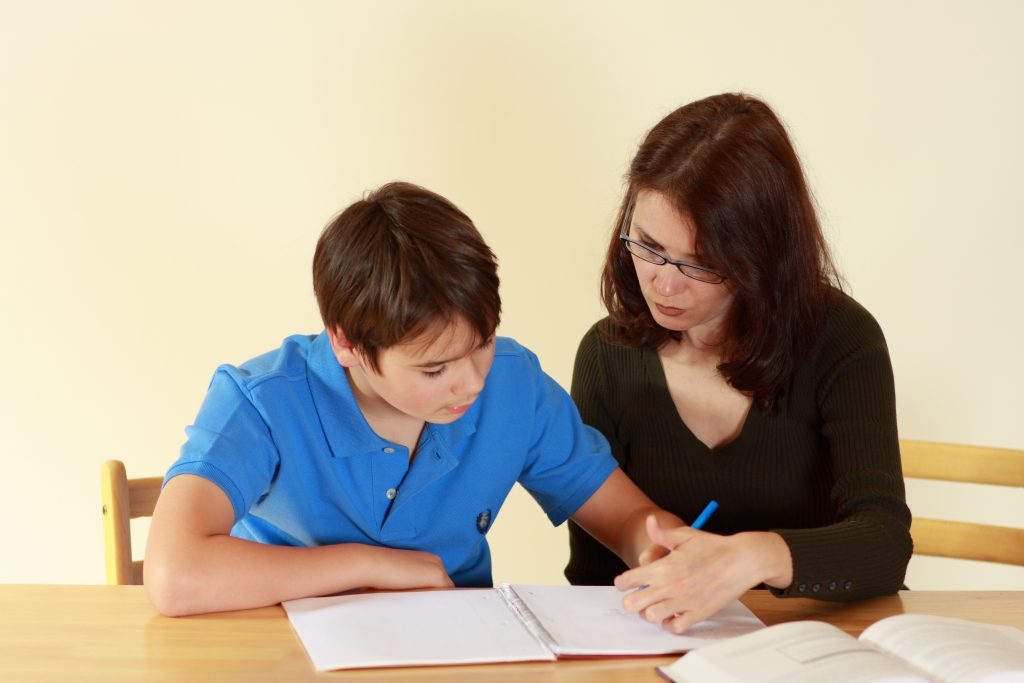“K-8, elementary students, anything language-arts based, homeless shelter,” I wrote on my application. “Preferably girls,” I thought.
Then I got the call. “We have a student who is a high-school-aged boy, living in a group home for kids with drug problems. He’s a senior. It shouldn’t be too hard since he’s at middle-school level.”
“Okay … I’ll be there.”
“Worth a shot,” I thought.
A year ago, I signed up to tutor homeless kids in Los Angeles through School on Wheels. There are currently 63,000 youths without a home in Los Angeles County.
Uprooted, living in shelters, motels, sleeping on friends’ couches or in group homes, they change schools often and lack support for their studies. These kids’ young lives are disrupted by unstable family structures, trauma and addiction.
It’s heartbreaking, but, having worked as a tutor before, I was eager to try.
The volunteer coordinator told me, “They’re all really sweet kids.” Boy, was he right.
David* was a gentle giant. He had recently moved from Central America, struggled with English and had never written an essay. I first met him when he was working on a history paper. He copied word for word from George Washington’s Wikipedia page. It wasn’t attempted plagiarism — he just didn’t know where else to get the words.
We worked on summarizing. Later came the five-paragraph essays, and even later came proper spelling and grammar. Over the next few months he learned to write beautiful essays.
Passionate, driven, this kid poured his heart onto each typed page. And then, one day when I arrived, David was gone. Reunited with his mom, finished with rehab, a few classes under his belt, and hopefully, a new outlook on life.
It was just one hour a week. But I left rejuvenated. Hopeful. I saw these kids, formerly addicted to substances, trying to make something of their lives. They were open about their struggles, resilient. And they grew.
The kid who impacted me most was Manuelito. A young 15, he loved skateboarding, vampire bats and doing anything but school work. He told me directly, “I fell in with the wrong crowd, started using drugs and stuff. But now I want to make a change. That’s why I’m here.” This kid possessed an optimistic, sunny, kind disposition in spite of everything.
Once, we were talking about drugs for his health class. His quiz prompted a true-or-false question: “College students do a lot of binge drinking.”
He thought for a moment, and piped up, “I know college students do drink and do drugs and stuff. But,” he added hopefully, “I think most of them study and are good students.” This sweet kid believed in spite of everything that people were good at heart.
Manuelito struggled with a learning disability. Distractions plagued him, and every question took an agonizing time for him to analyze. He’d sigh, “My teacher calls me dumb.” Every time I’d remind him, “No, man. You’re smart. I don’t expect you to know things you haven’t learned yet!”
With praise, an Individualized Education Program for his learning disability and countless Tony Hawk skateboarding examples, his confidence grew. And he started to accept that he was, indeed, smart.
During sessions with my students, we worked on test skills, research, grammar, time management. More often, I just sat encouraging them through each lecture and quiz.
In these moments, I could be the only unpaid, caring adult in these kids’ lives. I could let them know that they matter, that I believe in them, that they’re worth it.
Every kid deserves to know he’s valued for who he is. For just one hour a week, it was worth it.
*Names were changed for privacy of the students.
Molly Sheahan is the projects and programs strategist for the Office of Life, Justice and Peace at the Archdiocese of Los Angeles.

